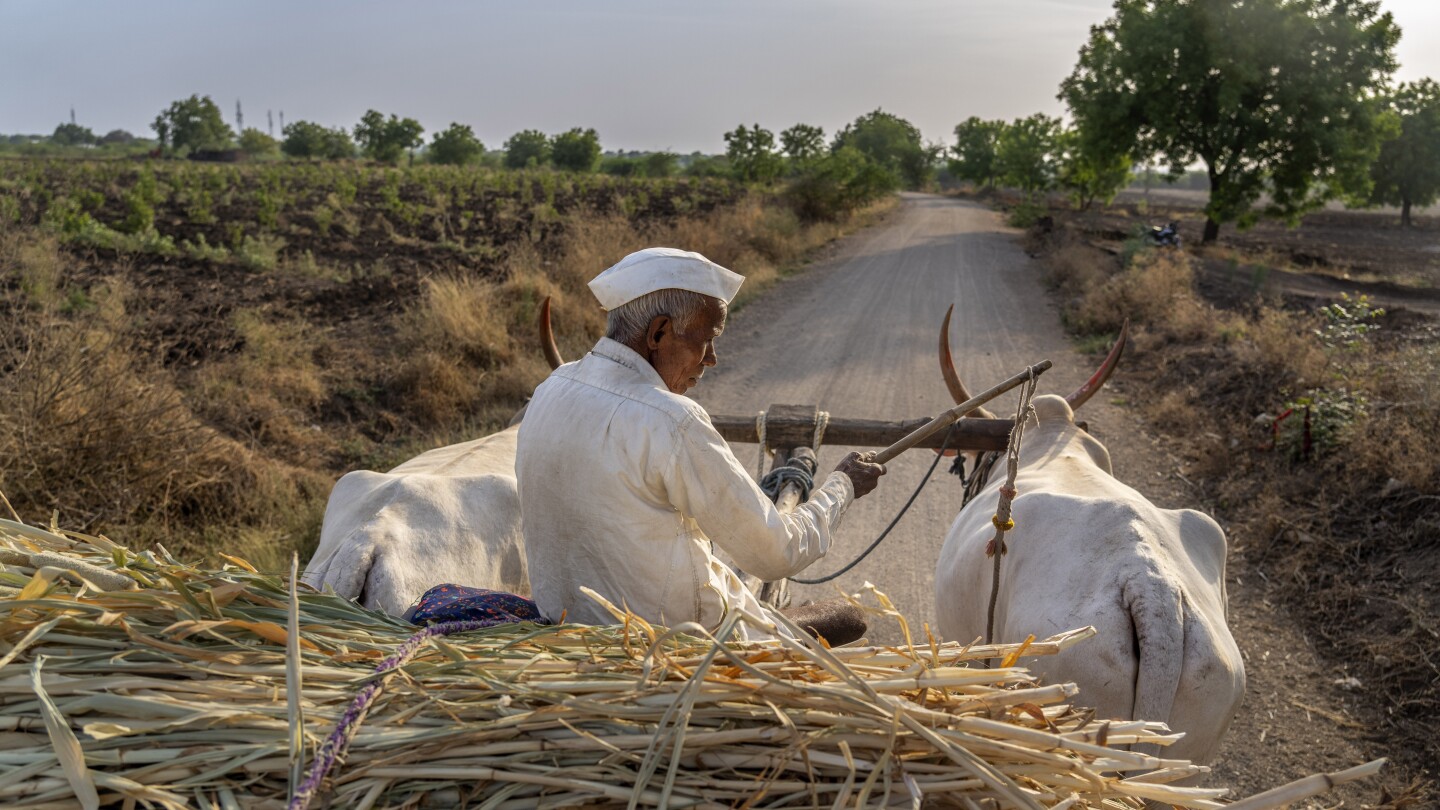On a stifling hot day this May, farm worker Shobha Londhe is reminded of the desperate conditions that led her husband to take his own life. It’s the hottest and driest summer in years, she said, and for farm workers that often means little to no income, rising debts and intolerable heat.
Londhe, a resident of Talegaon village in western India, knows well the toll these climate change-induced droughts can take on farmers. Three years ago, she said the family’s financial situation was untenable as crops failed from too much heat and not enough water. Her husband Tatya went out to the fields one October day, and never returned.
“He was struggling because we were always in debt,” said Londhe, a framed picture of her husband beside her. She partly blames his death on the increasingly hot and dry weather in their home region of Marathwada in Maharashtra state. “We are completely dependent on rainwater for agriculture,” she said.
Londhe is one of India’s 120 million farmers who share fast-shrinking water resources as groundwater is pumped out faster than rain can replenish it. Drought-prone areas like Marathwada are at the sharp end of the shortage, making life unbearable for many. As the country continues to vote in its marathon six-week election, farmers are looking for longer-term solutions to the water problem, like building canal networks from distant rivers. But politicians have promised and done little to secure water for them, with activists saying that big businesses and large farms are being prioritized instead.



More Modi isn’t going to do anything but make this worse.